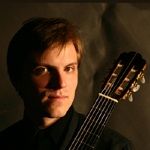The wonders of the internet never cease...
Welcome to my blog! I've been looking forward to this for a while - all my friends seem to have these and I've been lagging behind the trend (nothing new). I do have to warn you, this blog is not for the timid or weak of mind. You can expect intelligent, thought provoking posts that will challenge your brain, though I suspect a little fun here and there couldn't hurt.
For those of you who are visitors and have no idea who I am, here's a little more about me...
First and foremost, I am a Christian, simple as that. Second, I am a scientist/engineer, a chemistry/chemical engineering double major. If you ask my friends, they will tell you this is what defines me: I am a follower of the ruler of the universe and the author of science, Jesus Christ (I'm sure you'll see a post on this later). Hence, I'm consumed with all types of theological, philosophical, scientific, and technological pursuits.
Other interests:
Music and Arts - Nearly all kinds, in particular classical guitar and vocal music. My 'specialization,' per se, is Renaissance and early Baroque period music.
Games - I enjoy strategy games and card games. I especially like games made by the master, Klaus Teuber, such as Settlers of Catan and Domaine. For card games, I love Spades, Hearts, Bridge, and numerous CCG's. Occaisionally I find a minute to play a computer game, but my tastes are moving towards the 'instant gratification' games like Worms (fun and fast).
Reading - When I have the time, I enjoy to read all sorts of miscellaneous stuff. Since I do so much technical reading these days, however, I try to balance it out with readings on philosophy, theology, and history, with some fiction every once in a while.
'Other' Entertainment - A good movie is hard to beat, I must admit. ;-)
I hope you enjoy this blog. You can expect a post every couple of days, with new features coming all the time!
Well, here goes the first post...



